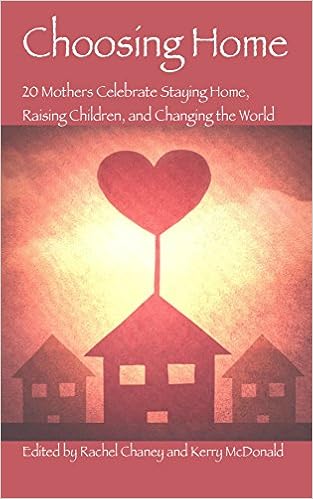In just the past two weeks I have had separate, but strikingly similar, conversations with two different moms about their child's schooling experience.
In both cases, there was something tickling at their mama instincts. They knew deep down that the anxiety and depression their children are experiencing -- who in both cases are middle schoolers (only 12 or 13!) -- are not normal and are induced by schooling. In both of these conversations, the moms had never expected to homeschool and didn't know much about it, but felt that they had to do something for the sake of their children.
Beyond the obvious tragedy of children experiencing daily turmoil over schooling, what I found most profound in these conversations is that neither mom even knew that school-induced anxiety and depression are real, research-based phenomena. When I shared with them some of the research articles, especially Boston College psychology professor Dr. Peter Gray's articles on the topic, it was as if a giant weight was lifted. They were relieved to know that their mama instincts were right on (as mama instincts usually are), and now had the information they needed to make a more informed decision about whether and when to remove their child from school. In one case, the boy is in a public school that is criticizing the mother for even considering removing her child from school; the other boy is in a prestigious private school.
School-related anxiety and depression are real, serious issues that can lead to catastrophe, as evidenced by the rising suicide rate among children. In fact, according to the CDC, the suicide rate among 10 to 14 year olds has doubled since 2007. And for girls in that age group, the suicide rate has tripled over the past 15 years.
In his own research, Dr. Gray has found that children's mental health is directly related to school attendance. He discovered that children's psychiatric ER visits drop precipitously in the summer and rise again once school begins. The month with the biggest spike in ER visits is May, often coinciding with end-of-school academic and social pressures. Dr. Gray concludes: "The available evidence suggests quite strongly that school is bad for children's mental health. Of course, it's bad for their physical health, too; nature did not design children to be cooped up all day at a micromanaged, sedentary job."
Beyond these extreme mental health crises, Dr. Gray's research, and that of others, has shown that generalized anxiety and depression are skyrocketing in children. Dr. Gray maintains that much of this rise in anxiety and depression in children is due to lengthier, more restrictive schooling over the past several decades. He writes: "Children today spend more hours per day, days per year, and years of their life in school than ever before. More weight is given to tests and grades than ever. Outside of school, children spend more time than ever in settings in which they are directed, protected, catered to, ranked, judged, and rewarded by adults. In all of these settings adults are in control, not children." An advocate of unschooling, and my colleague at the Alliance for Self-Directed Education, Dr. Gray urges parents and educators to think critically about the negative impacts of coercive schooling on children's health and well-being. He asserts: "We don't need to drive kids crazy to educate them. Given freedom and opportunity, without coercion, young people educate themselves."
So what will these moms do? Will they pull their boys out of school? Is homeschooling the only option? Luckily, there are alternatives to school. Beyond homeschooling, there is a growing number of self-directed learning centers across the country that support families, including several here in Massachusetts where the two moms are located. More and more parents are banding together to create parent-run co-ops to meet their children's social, intellectual, and emotional needs. Others are starting democratic/free/Sudbury-type "schools" and learning centers that embrace the philosophy of Self-Directed Education.
I am not sure what these two moms will ultimately decide and how their boys will fare, but I do know that they now have more research-based information about the potential dangers of coercive schooling and new ideas on the many options available to them.
Most importantly, though, they know to always trust their powerful mama instincts.
Subscribe to:
Post Comments (Atom)
























No comments:
Post a Comment
Note: Only a member of this blog may post a comment.